|
I’m a FIRST fan, originally from California, but since 2013 I live in Munich, Germany. I’ve been a member of the FIRST community since 2008, when I started as a mentor, and then coach of FRC Team 1967 Janksters, an all-girls team from Silicon Valley, CA. After leaving the US, I have tried to stay active in FIRST, and earlier this year I became an active member of the local FIRST community here in Europe. I started to blog about my experience of FIRST in Europe (though I write only in German) to try to help spread the message of FIRST to more Germans since it is not as well known here as in the USA, and I thought it would be fun to an English post and also share some of my international experiences here to the FIRST Ladies audience.
I judged my first FLL regional competition in Germany January this year in Munich for last season’s World Class: Learning Unleashed theme. I was assigned to be a part of the teamwork jury, where our teamwork activity was a charades game, which fit my language skills well because it was mostly observing and then asking a few questions in German at the end. It was a lot of fun to get to know the teams better, and learning how they would explain FIRST and gracious professionalism to their communities. The teams seemed to have been caught off guard if I asked about gracious professionalism, which was very different from my experience in FRC, though I can’t recall if I had asked teams about gracious professionalism when I judged FLL in the USA. When it came down to choosing a team for the Judge’s Award, I noticed one team was exhibiting exactly what I feel is gracious professionalism at the FRC level. I was walking around the practice tables to observe the teams testing their robots for the game, and while most of the teams were focused on getting their time on the table to practice and mostly interacting only with their team members and coaches, there was one team that I saw always waiting patiently for their turn, asking when the could have a turn, letting other teams have a go when they needed a short break on the table to make some changes, and, on top of all of that, resetting all the Lego tasks for other teams while they were waiting! I quickly went to tell the other judges what I saw, and they all agreed that this team was the perfect choice for the Judge’s Award and they gave me the honor to announce this award during the awards ceremony. The Central European FLL finale was also held in Munich last season, and I volunteered as a teamwork judge there as well. It was a very different experience to be a judge at the finale. Because the Central Europe FLL Division consists of teams from several different countries, the finale is held in English, whereas the regional events seem to be typically run in the national language. It felt very different to have the teamwork sessions, some even with the same teams I had seen in the Munich regional competition, and to be able to get to know the teams in their foreign language, as opposed to in my foreign language. In the teamwork sessions, the teams are judged on whether every team member participates or if only a few of the team members are speaking. This can be very challenging in a foreign language when the age gap among the team members is large. I vividly remember one German team with several older boys, about 12-13 years old, with one 9-year-old on the team who sat by quietly while his teammates told us, the judges, about their team, but at one point the youngest boy suddenly opens his mouth and says “Ich sage nichts nur weil ich die Sprache nicht kenne (I am not saying anything only because I don’t know the language).” He really wanted to participate but hadn’t learned enough English yet, but his extra courage to speak up to explain this to us definitely left a good impression on us. Of course we tell the teams at the beginning that the older kids can translate to and from the younger kids, though sometime we have to continue to remind them and encourage them so the younger members can participate. It was really interesting to see this extra challenge of teamwork and how team address it and overcome it, something I never had come across judging FLL in the USA. I was asked by one of the organizers at one of the tournaments what differences I noticed about my experiences in Germany and in the USA. On the side of the teams and participants, I can happily say that I notice the same inspiring FIRST atmosphere, with not only students always coming up with surprising and creative ideas related to the robot and research projects, but also participants all working together helping each other, cheering for other teams, making new friends, and having fun. These are the reasons I volunteer to judge at FIRST tournaments. In both countries, there are lots of veteran teams who have done FIRST before and really get it, and there are also new teams just discovering the joys of robotics and FIRST. I think the students experience FIRST similarly no matter what country they are in, with perhaps this extra challenge of the language. The difference that I do notice here in Europe, however, is in the volunteer and mentor support. There is a really strong FIRST community in California, especially in Silicon Valley where I come from, so I was used to always meeting other judges and volunteers with extensive FIRST experience and who really understood that the competition were about more than just the robots. In Germany, most of the other volunteers I meet are first time volunteers, even though FLL started in Germany only two year after the first FLL in the USA. From just one day at a tournament, sometimes I wonder whether the volunteers are able to fully observe all of these special aspects of FIRST and get hooked enough to return. The retuning adult volunteer base seems small enough that after only a year after getting involved in FIRST on this side of the world, I know a good proportion of the adult FIRST fans in Central Europe. On a personal note, there is a big difference I notice for myself being a judge here in Germany compared to in the USA, and that is the language experience. As a long-time FRC mentor and coach of an all-girls team, I have lots of experience helping encourage young women to be confident in speaking to different types of audiences. I used to think that selling oneself, negotiating, and asking for information were speaking skills one could practice and eventually learn, and once one gained the confidence to do this with these different types of audiences then the battle was won. I thought that as a professional female scientist and engineer, I had achieved these skills and mentor other young women to help them in these skills. My viewpoint on this changed after my first time judging the FLL tournament in Munich, and sitting in front of a dozen teams of teenagers, having to question then in my foreign language/their mother tongue, and then having to stand in front of over 100 people in the audience and use this language again to answer questions from the MC and give out the Judge’s Award. Though I’ve done these things dozens of times in the USA and am fairly comfortable with public speaking in my mother tongue of English, I don’t think I had been so nervous to speak in front of people since I was a teenager myself. That’s when I realized how it probably is for many of the young students participating in FIRST for the first time, maybe especially for some of the young women that I have mentored, when they don’t know all of the technical (and non-technical) vocabulary, and as a result are not entirely confident in communicating and are scared to speak up. Somehow I still managed to get through the judging sessions and give speeches during the awards ceremony in front of so many people, all in a language that is still new to me. I realized that even though I am not always the best and most confident public speaker, I can still try to help other succeed in these skills by sharing my experiences. So what helped me, and what would I advise then to others? Practice, practice, practice. Try to make improvements. Ask for help. And practice some more. In my first judging experience in Germany, I wrote out my speech to give out the Judge’s Award and had one of the other judges that was German correct it for grammar and understandability, and I read my speech from the paper. And after some time, improvements are bound to be noticed. Last month I traveled to Nuremberg, Germany to be a research presentation judge for Trash Trek this season, and I was able to give out two awards without having to read my speeches from a paper. I was still pretty nervous, but I think it was improvement from last year. Not only does every new FIRST experience I have continue to impress and inspire me, but even as a mentor, coach, and judge, do I continue to learn something new and grow from each new FIRST experience. I am wishing all of the readers of FIRST Ladies a fun and successful FIRST season, and I hope that the learning for you all will also continue even after your time in your current FIRST experience ends. This blog was written by Genny Pang. If you are interested in blogging for FIRST Ladies, click here to sign up on the schedule.
0 Comments
When I signed up for this blog post it was before our trip to Hong Kong and China. I knew I would want to write about and share our experiences, but I had no idea what it would be about. On the plane ride back to Sydney, I thought more about the trip; what was the highlight and what should I write about? I could write about starting FTC in Hong Kong and how excited everyone was. How they couldn’t ask enough questions and the eager, almost hungry, look in their eyes as we talked about FTC. I could write about the FRC competition. About the ability to show FRC off at the largest robotics event in Chinese history. An event sanctioned by President Xi and attended by Vice Premier Liu Yandong (the 3rd most powerful person in China) I could tell the funny stories of trying to get batteries through Chinese security (does anyone know how to say “nickel metal hydride” in Mandarin?) or of celebrating team members’ birthdays at every possible moment (How much long-noodle soup can a person eat in a week?) And then it hit me, the part of the trip that I needed to write about was our last leg to the Fujian province. See, I’ve always loved underdog stories and as a result my favorite FIRST teams are the ones no one ever hears about. I love the rural and remote teams, the ones who reach the forgotten children of the world. And the Fujian province is part of forgotten China. The Fujian province is the closest to Taiwan, right on the coast and fairly far south. When we first arrived, we breathed deeply enjoying the smog free air. The scent of trees and nature was almost overpowering after a week in Beijing’s record breaking smog. The first day we started at a high school 2 hours outside the capital of Fuzhou in a low income area. This school had won the 2014 FTC Asia Pacific Invitational and had an FRC team that attended the 2015 Australian FRC Regional. The students recognized us and they were excited to show off their robot. They showed us their labs and we had fun together. Right before lunch, we went outside and did the Cupid Shuffle together. That’s when the day’s real excitement started. The entire school seemed to come out to see us dancing together. After the dance finished, we were swarmed. When one of the boys in our group gave a girl in the crowd a hug, the whole group screamed. It felt like we were major celebrities, everyone swarmed us, wanting picture, hugs and autographs! Eventually, the teachers stepped in and helped get us to lunch in a private room. After lunch, we went back into the main area of the school where we found a number of students were standing around waiting for us to come out. More hugs, pictures, and autographs followed. One girl even gifted us with her favorite book! Before leaving, a few of us went into the karate class and got to give it a try. Every time we did a move, you would’ve thought we were royalty with the way they cheered! The next day and a half was filled with more travel and presentations throughout the province. In all the other locations, we were treated as celebrities, though not in the same way as the first high school. Afterwards, one question kept floating in my head “why?” Why had we been treated like celebrities? Why were we so valued? It was because we were probably the first white people they had ever seen. Just stop to think about that for a minute. We were the first caucasian people these students had ever met in person.
That is the power of FIRST. It is to show students like those in Fujian that regardless of race/ethnicity we can all speak the common language of robotics. That no matter what religion we follow or politics we promote we can work together. And that maybe, by putting aside our differences and focusing on our similarities, we can work towards peace. This blog was written by Sarah Heimlich from FRC Team 3132, The Thunder Down Under. To see all the photos from their trip to China, click here. If you are interested in blogging for FIRST Ladies, click here to sign up on the schedule. 5 THINGS THAT GIRLS STUDYING AN ENGINEERING DEGREE MUST KNOWBeing a girl in engineering degrees has never been easy. Still, who says that we can’t or shouldn’t become engineers?
We are first year students in Mechatronics and Industrial Engineering and, our experience has taught us that, what most people often ask a girl in engineering is: “Why Engineering? It is a men’s degree”. The worst part is that this question has been asked (mostly) by women, and there is something we must understand before taking the challenge of becoming engineers:
“The perfect woman, you see [is] a working-woman; not an idler; not a fine lady; but one who [uses] her hands and her head and her heart for the good of others.” - Thomas Hardy This blog was written by Elizabeth Hernández Torres and Paulina Chávez García. If you are interested in blogging for FIRST Ladies, click here to sign up on the schedule. We are FIRST Tech Challenge Team #3595, Schrödinger’s Hat. This is our fifth year in the program, and at the 2015 World Championship, we were honored to be the recipient of the Inspire Award. We’re often asked how we presented our season to the judges. The most important thing that we tried to emphasize in judging is the availability of opportunities in FIRST, and what comes about when they are taken advantage of. FIRST’s tagline for that world tournament was “More than Robots,” and what we are writing about today is a subset of that focus. FIRST is an incredible program, with numerous opportunities for internships, travel, scholarships, networking, collaborations, and more. But many teams are not adequately aware of these opportunities, and as such they don’t get quite as much out of FIRST as they otherwise could. Taking advantage of as many opportunities as we can has been one of our team’s biggest focuses over the past year and a half, and because of this we have gotten even more out of FIRST than we had before. When teams take advantage of one single opportunity, it can snowball, and teams can wind up with many chances to help and to learn from others. For example, here is a story that we told during our judging at Worlds. In the summer of 2014, we volunteered to give two “Gear Up with FTC” presentations for FIRST’s online conference. Because of one of those presentations, we were asked by National Instruments to help them with a “LabVIEW Quick Start Guide” for teams. As a result of that, we were asked to remotely host a teacher training on programming in Sydney, Australia. The other Gear Up with FTC presentation led to multiple collaborations with FIRST: we were asked to speak during an Ask An Expert call on electrostatic discharge about ways to minimize ESD through robot wiring. We were also asked to write large portions of FIRST’s robot wiring guide for teams. When we gave the two Gear Up with FTC presentations we had no idea how many amazing opportunities would come about as a result of them, or that they would become some of the most rewarding parts of our season. However, teams often don’t take advantage of these opportunities. One of the reasons for this is that these opportunities often come up during “crunch season,” when teams are very busy, and it seems like they would not be worthwhile, or that time would be better spent working on the robot. But it’s important to remember that these opportunities can be just as valuable – both short-term and long-term – as building the robot. Another option is to focus on these opportunities during the off-season, which allows teams to put more focus on the robot during the build season. However your team chooses to go about this, taking advantage of opportunities makes your season much more fun and rewarding – it’s how we have made all of our closest friends in FTC! However, it can be difficult know how to begin. There are a few things that helped our team to get the ball rolling. Paying attention to FIRST’s team email blasts was a great help. Opportunities are frequently mentioned in these emails, and they are a wonderful way to stay up-to-date. Following FIRST on social media is another helpful way to hear about opportunities and to stay involved. Maybe your team can get involved with some of the online communities surrounding FIRST. For example, FIRST Ladies has an option to volunteer to write a blog. In addition to FIRST Ladies, also check out FTC Tec Network and Mentors Without Borders. Not only will opportunities arise through your involvement, but you’ll make amazing friends and gain very important skills. Partaking of activities like that is a fantastic way to get your team out there and make a difference. It can also lead to amazing opportunities.
This blog was written by Katie and Colleen from FTC Team 3595. If you are interested in blogging for FIRST Ladies, click here to sign up on the schedule. |
Be a guest
Do you want to be a guest blogger for FIRST Ladies? You can write about a topic of your choice! Anyone can submit a blog, especially our Regional Partner teams! Please email us the a Google Doc of the completed blog. Thank you! Archives
April 2024
|

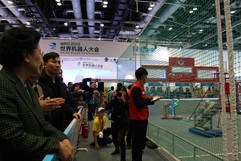
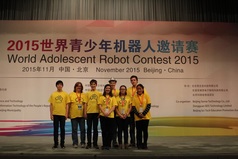
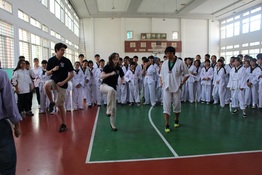
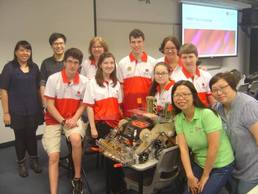
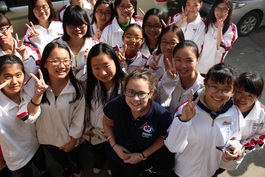
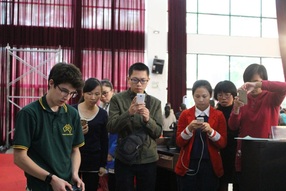

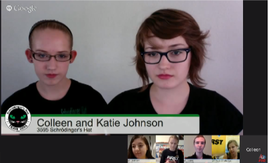
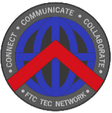
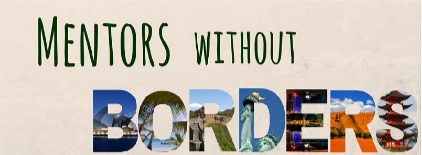
 RSS Feed
RSS Feed
